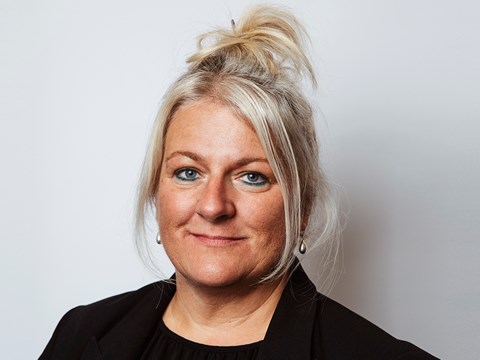The Upskill Conundrum - Where SHOULD Your Time Really Be Going (Once You’ve Found It!)
25 Nov 2024
I’ve always admired Tom Fishburne, the Marketoonist, for capturing marketing “truths” and had many a wry smile when seeing a new cartoon delivering a bull's eye truth on a common or topical marketing issue.
And his latest one on Upskilling does it again. This time focusing on "Always Be Upskilling," and shining a light on the relentless pressure to keep up and keep learning. Here’s the link to his post for those who can relate (and because we know the drill on copyright!).
The need for continuous improvement, a growth mindset, and self-investment feels like obvious wisdom. Couldn’t agree more. But there are also some steep barriers, which Fishburne subtly points out with just six words: “Remember to find time for upskilling.”
The barriers look like this:
- Budget constraints
- Limited physical time
- Mental bandwidth
Reality Check:
That’s the beauty of this cartoon — it reminds us of the reality check and subtly acknowledges these real-life barriers.
I hugely admire Mastercard’s CMO Raja Rajamannar, who is referenced in the same post as setting an example to his marketing team by personally spending “five to six hours” every weekend on his own upskilling but crikey, that’s a big ask. I’m going to hold onto the spirit of his advice though, for sure.
The truth is, we have endless resources at our fingertips—five-minute tutorials, quick searches, YouTube videos—and the chance to learn endlessly through discovery and playing. My curiosity, especially with tools like ChatGPT, has fueled my own growth. But while it’s essential to stay on top of emerging skills, it’s just as vital for marketers to master the core basics, the foundations of being a good marketer.
The Core Upskill Needs:
Too often in my day-to-day journey working with clients, agencies and in-house teams it's the “brilliant basics” that are causing issues - waste, rework, quality concerns, agility - which leads me to two critical observations drawn from my work as a client, consultant, trainer, and upskill lead at AAR.
1. A Commercial Perspective: Upskilling Where It Counts
Upskilling should focus on skills that make an immediate difference - those already costing your organisation and marketing operations in tangible terms. Building a strong business case for upskilling is crucial, shifting its perception from cost to investment. In fact, IPA’s Better Briefing research highlights that poor briefings alone waste millions in budget across the industry, and Thinkbox has reported that inefficient planning and missed insights create huge inefficiencies. The price of not investing in core skills like briefing, agency management, campaign development, evaluation is calculable and trackable.
2. A Change Perspective: Fueling the Growth Mindset
A growth mindset needs energy, focus, and structured support to take root. Change isn’t easy; it’s tough to shift habits and implement new skills. Raja Rajamannar rightly pointed out that marketers who don’t quickly build AI knowledge will find themselves at a disadvantage: “If you don’t get up the curve and learn to start deploying AI intelligently, you can become obsolete.” The urgency is real, but so are the pressures that hinder growth.
To sustain momentum, we need action-oriented support systems. Here are a few positive, practical actions leaders can take:
- Set Development Goals: Make upskilling part of personal development plans (PDPs) and regular objectives.
- Create Manager Support Structures: Encourage managers to regularly check in on team growth, not just project outputs.
- Bring in External Perspectives: Engage industry speakers, workshops, or thought leaders to keep learning fresh and relevant.
- Offer Peer Learning Opportunities: Build networks within and outside the organisation to create peer-to-peer learning and mentoring.
But even with these supports, the central challenge is time. Growth requires more than just finding an odd 10 or 30 minutes between meetings; it requires dedicated time to truly engage, explore, and (crucially) evolve.
Time to be curious. Time to explore. Time to reflect.
Time to connect with mentors. Time to attend training courses. Time to prep for coaching.
Time to immerse -fully - without distractions. Knowing emergencies have been handled.
Time to listen to that podcast, read that book, digest this article (wry smile).
In other words, Growth Time.
Here at AAR, we can help with business cases, we can help structuring the right programmes for your needs, we can help find external speakers that will inspire and inform. But we know the difference team leads and culture can make. So I want to share some “kick off” practical suggestions to help make Growth Time a reality in your teams:
- Build flexibility into schedules: Let team members block time specifically for skill development, making it protected time. And lead by example.
- Incentivise continuous learning: recognise and reward growth efforts to signal that learning is valued. Team member of the month is…
- Encourage cross-team learning: Facilitate connections across teams to foster mentorship and knowledge sharing. Make having a mentor essential.
- Protect Growth Time from BAU/distractions: Encourage boundaries around learning time to protect it from daily tasks and meetings. Never DM someone when attending a module or course.
- Celebrate progress: Track and celebrate the impact of upskilling, from small wins to major improvements, to build momentum and recognition. Connect to commercial changes (e.g reduction in rework, right first time briefing).
Crucial to COMMIT
To make real progress, let’s shift from “Remember to find time for upskilling” to “Let’s all COMMIT to Growth Time.” As Charles Darwin said, “It is not the strongest of the species that survive, nor the most intelligent, but the one most responsive to change.” In an industry evolving as fast as ours, adaptability is everything.
Ready to take the first steps in developing Growth Time more effectively for your teams, or marketing function? Then drop me a line at vgillan@aargroup.co.uk, or feel free to connect on LinkedIn now and DM me.
Vicky Gillan, AAR’s Relationship Management and Upskill Lead Consultant, helps brands shape and create the right upskill and change programmes working to Growth Time principles. She also delivers the Better Work programme, driving essential core skills to deliver change where it counts, and is already costing you.
About The Author




